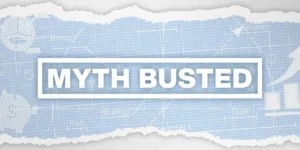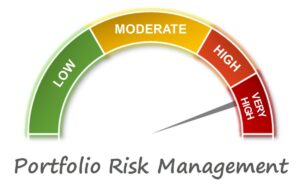One of the most important financial goals is saving for retirement. A secure and happy retirement doesn’t just happen; it requires careful planning, hard work, and a smart retirement investment strategy. Whether you’re in your 20s and just starting your career or in your 50s and preparing for retirement, the right investment techniques can help you build wealth and give you peace of mind later in life. If you want to live the life you want after retirement, you need to know how to manage and invest your money well now.
Save Early so Your Money Grows Later
Start saving early for retirement. This is one of the best pieces of advice you can get. Because interest rates rise over time, starting early gives your money more time to grow. Small deposits can eventually add up to a large sum. Starting early also allows you to take more risks with your investments, because you have more time to recover from market changes. Starting in your 20s and 30s can help you build a solid foundation for retirement without having to worry about building up a large sum later.
A Clear List of Retirement Goals
A clear vision for your future can help you choose the right investment options. Think about the age you want to retire, the lifestyle you want to maintain, potential medical expenses, travel plans, and where you want to live in the future. Once you have your goals, you can determine how much you need to save each month and what expenses will help you achieve your goals. Without clear goals, you won’t be able to track your progress or stay motivated, so determining what a successful retirement looks like is the first thing you need to do.
Diversify your Investments
If you want to protect your retirement savings from market fluctuations, you need a broad portfolio. This means investing your money in a variety of sectors, such as stocks, bonds, real estate, and mutual funds. Diversification helps manage risk and ensures that poor performance in one area doesn’t affect the health of your entire portfolio. As you approach retirement age, it’s a good idea to slowly move your money into safer options. Even after you retire, investing in stocks with growth potential can help your savings keep up with inflation.
Take Advantage of Tax Benefits
Retirement accounts offer a number of attractive tax benefits that can help your money grow faster. You can save money in a traditional retirement account on a pre-tax basis, which can reduce your taxable income for the year. Roth accounts, on the other hand, hold taxable money, but certain transfers are tax-free. Understanding the tax implications of each type of account can help you choose where to invest your money based on your current income and the tax rate you expect to pay in retirement. Tax-advantaged funds can help you retain more of your income and get the most out of your investments.
Monitor your Strategy and Adjust it Over Time
Your retirement investment plan doesn’t have to be set in stone. It’s crucial to monitor your investments and adjust them as your life, goals, and the market change. Plan to review your stocks at least once or twice a year to make sure they’re still helping you achieve your retirement goals. You may need to rebalance your investments to maintain your ideal asset mix, and market changes can introduce new opportunities or risks. Consistent retirement planning can keep you on track and prevent you from making mistakes that could lead to big losses.
Avoid Emotional Investment Choices
Markets aren’t always stable, and downturns are inevitable. When that happens, it’s easy to panic and make rash decisions that hurt your long-term goals. Smart managers know that it’s best to stay the course and follow a well-thought-out plan. When the economy takes a downturn, people tend to sell investments quickly to avoid losses. But if you stay invested, you may be able to recover and see growth in the future. Stay calm, learn as much as you can, and make decisions based on your retirement plan rather than short-term market changes.
Work with a Financial Advisor if Needed
If managing your retirement investments seems overwhelming, consult a financial advisor. A good financial advisor can help you create a plan that fits your goals, income, and risk appetite. He or she can advise you on managing your portfolio, choosing the right assets, and tax matters. Hiring a financial advisor can also give you peace of mind, knowing that you are investing in the right direction and making adjustments as needed. Professional help can be expensive, but it is often worth it, especially when it comes to protecting your financial future.
Conclusion
Retirement investing can help you secure your financial future, but it requires dedication, knowledge, and smart choices. You can build a solid foundation for a comfortable retirement by starting early, setting clear goals, diversifying your portfolio, and taking advantage of tax benefits. Over time, you can grow your savings by being persistent, tracking your progress, and not making decisions based on emotions. If you start late, it’s never too late to make changes and take control of your finances. Retirement planning is more than just saving money; it’s about giving yourself the freedom to live the way you want while maintaining financial security.
FAQs
1. When should I start saving for retirement?
The best time to start saving for retirement is as early as possible. By starting early, your money has more time to grow through compounding.
2. How much should I save for retirement?
A common recommendation is to save 10% to 15% of your income each year starting in your 20s. How much you save depends on your life goals and expected expenses.
3. What’s the best way to save for retirement?
A diversified portfolio of stocks, bonds, and other investments is generally considered safe. As you get closer to retirement, investing in safer assets can keep your savings safe.
4. Are employer pension plans a good option?
Yes, especially if your company offers to match the money you put in. You can get tax deductions from these plans and they also make it easy to save money each month.
5. What happens if I wait too long to save?
If you start saving later, you may have to save more or work longer, but you can still build a nice retirement by spending wisely and working hard.




